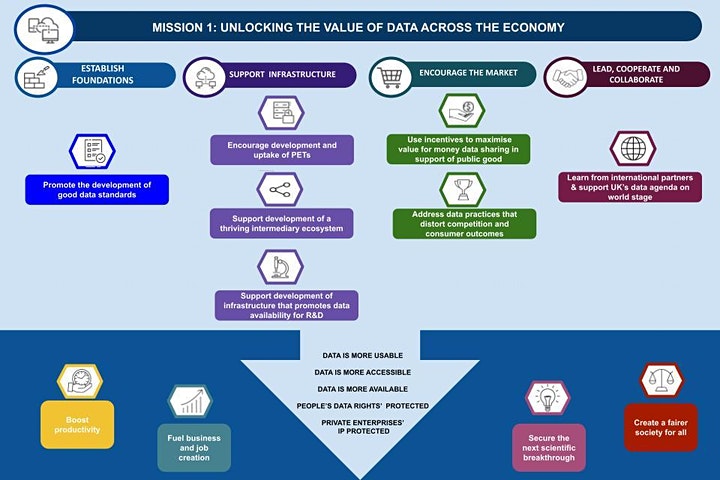When we published the National Data Strategy last September, we set out that our first mission would be to unlock the value of data from the private and third sector. We knew the full potential of this data was not being realised because it wasn’t getting to where it needed to be.
The responses to COVID-19 were a great example of what data could do, when used for the public benefit. Access to data helped to speed up diagnoses and enabled us to grasp the effect the pandemic had on local communities, including its disproportionate impact on ethnic minorities. Companies like Google used data from other organisations such as the New York Times and John Hopkins to map COVID-19 hotspots so people knew places to avoid.
If more organisations were willing to share the data they had access to with other businesses, researchers, or even app developers – the social and economic impact could be significant.
However, as our commissioned research also reveals, there are several reasons why this isn’t already happening – from the costs associated with data sharing to a lack of public trust in how their data is being used.
The policy framework we’ve just published aims to address, or at least, mitigate, these challenges.
It outlines guidelines and seven priority areas for action for government intervention, so that we can help make data more usable, accessible and available across the economy – but without compromising on personal data rights or private enterprises’ intellectual property.
So, what does this mean for you?
Our priorities

We chose these priorities to balance our aims of protecting and empowering data subjects, while still supporting the growth of organisations who need data to innovate and thrive.
For instance, we know that you shouldn’t have to worry about being identified when your health tracker data is being shared with third parties, even if that might lead to life-saving research. That’s why we’re supporting the development of Privacy Enhancing Technologies – to ensure sensitive data – whether that’s your personal information or datasets that could compromise national security – is protected.
Or maybe you’re a member of the public who supports data-driven technologies to tackle COVID-19 and wants to donate selected data for this purpose. A data intermediary could make this happen by allowing you to share your data on your terms. One of our priorities is to facilitate the growth of this market.
We’ve also included priorities that we believe will help offset the risks and costs of data sharing for organisations, particularly lesser-resourced businesses and not-for-profits who need our support.
We know that the drawbacks of making their data available can sometimes outweigh the benefits – whether it’s public backlash for sharing consumer data or the effort needed to share that data at all. On the other hand, it’s hard to get access to data when you don’t have the right tools or infrastructure to do so.
To that end, we’re prioritising interventions that can save firms money and minimise risk in the long-term. Promoting good data standards, for instance, can ensure data is easily processed and of the right quality, which was overwhelmingly identified as key to an organisations’ success in our commissioned research.
We also want to make it easier for organisations to share data for research and development by supporting the development of infrastructure exclusively for that purpose. Some of this thinking is already happening between government and the private sector with the Online Safety Data Initiative – which is working to improve access to sensitive online harms data from content service providers and civil society partners, in order to develop new online safety solutions.
Next steps
Our policy framework outlines how this government will help increase access to data in order to keep driving innovation that benefits society as a whole.
We will continue to gather feedback and evidence to refine and target our approaches, including through stakeholder engagement. We’re kicking this off with a Webinar on 9 December, to discuss the framework and how our thinking developed. You can register for this event here.
 Department for Culture, Media and Sport
Department for Culture, Media and Sport